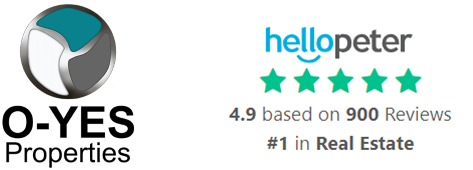| Many people only start thinking about home ownership when they are ready to settle down or start a family, but it can really pay to get a start in the property market much sooner. Buying a home is an investment in an appreciating asset, which means the value of the property will increase over time. According to recent research by property data company Lightstone, the average period of ownership among first-time buyers is 12 years, and in that period, most owners will have paid off a substantial portion of their bond and generated equity in their property. If you then sell, you can expect to show a positive return on your investment. Buy vs rent The longer you stay in your own home, the more cost-effective ownership becomes when compared to renting. Rental increases generally range from 4% to 10% a year, so your accommodation costs will increase accordingly if you are renting. After a few years of annual rent increases you will have nothing to show for the high outlay, and if you move out, you leave the property behind. You may even have to foot the bill for restoring the home to its original state. Bond repayment amounts, on the other hand, depend on current interest rates, which tend to change by much smaller percentages than rentals. Even if interest rates increase over the lifetime of the bond, the monthly instalments are unlikely to increase by as much as 10% - or even 4%. Also, even when interest rates do rise, part of each month’s repayment still goes towards reducing the outstanding capital portion of your home loan, allowing you to build equity. This is the difference between the market value of a property and the amount you still owe to the financial institution that holds the mortgage. Building equity by repaying your home loan each month has the same result as depositing money into a savings account that pays interest at the same rate as your home loan interest rate. This is usually a higher rate than banks pay on savings accounts, and is also tax-free. Paying extra money into your bond each month is a habit that can help you pay off your property much sooner than expected, and will save hundreds of thousands of rands in interest. On a bond of R1 million at an interest rate of 7%, if you pay R1 000 a month more than your agreed instalment, you will reduce the bond repayment term by more than four years and reduce the interest paid by around R208 000. Other benefits of ownership In addition to wealth creation, owning property also brings other benefits such as security of tenure, stability and the freedom to control your environment. Security – Owning your property means that no landlord can evict you, or sell your home, obliging you to move at a possibly inconvenient time. Stability – A paid-up home assures you of a more secure retirement, minimizing accommodation costs. You could live in the property, or sell it and use the proceeds to buy into a retirement village. Controlling your environment – Options for modifying or upgrading a rental property are limited, but when you own your home you can carry out improvements to suit your needs. You also benefit from the added value – personally and financially. However, you are responsible for maintenance, repairs, insurance and sectional title or homeowner association levies as well as municipal rates and taxes. These monthly costs must be taken into account when you calculate what you can afford when buying your own home. An added benefit is that covering all these costs and paying your bills on time while paying off a home loan will allow you to build up a healthy credit record from a young age.
|
|
First-time buyer benefit Property price growth has been outpaced by salary growth for the past few years. This has helped to make homeownership more affordable for many working South Africans, but it is the low-interest rates that have really tipped the scales and are driving the very high number of first-time buyers in the market at present. First-time buyers have the added advantage of being able to apply for the government's Finance Linked Individual Subsidy Programme (FLISP) subsidy. This can significantly lower the cost of owning a home. Amounts for this once-off subsidy range from R27 960 to R121 626, depending on individual circumstances. FLISP subsidies are available to all first-time property buyers who: • earn between R3 501 and R22 000 a month; • have already received approval for a home loan; • are South African citizens; and • have at least one dependant. The sooner the better Contact O-YES Home Loans to find out more The experts agree that the earlier you get onto the property ladder, the better off you will be in the long run. As a young person starting out you need to budget carefully to cover all your living expenses. But if you are paying rent, you should seriously consider the benefits of buying a home instead. The earlier you start paying off a mortgage bond, the sooner you will have a fixed asset free of debt. This can serve as security for other investments, creating wealth at an early age. Courtesy of PrivateProperty | Sarah-Jane Meyer | Berry Everitt from Chas Everitt
|
| Need more information? Fill in the form below and we will contact you! |
| |
